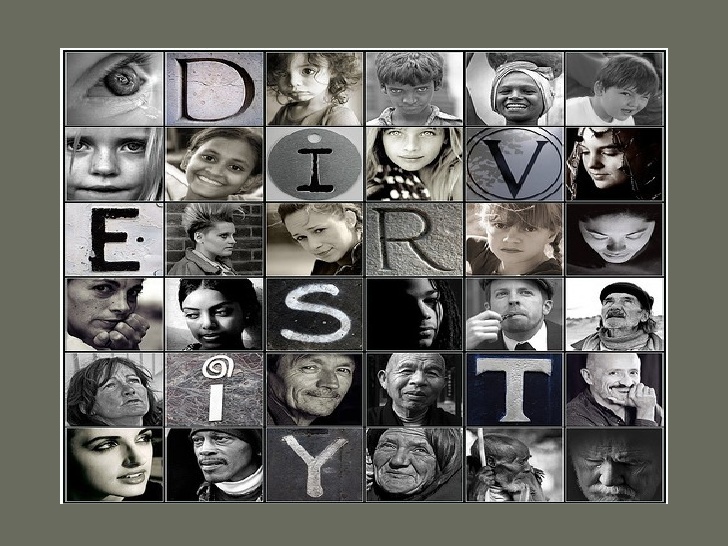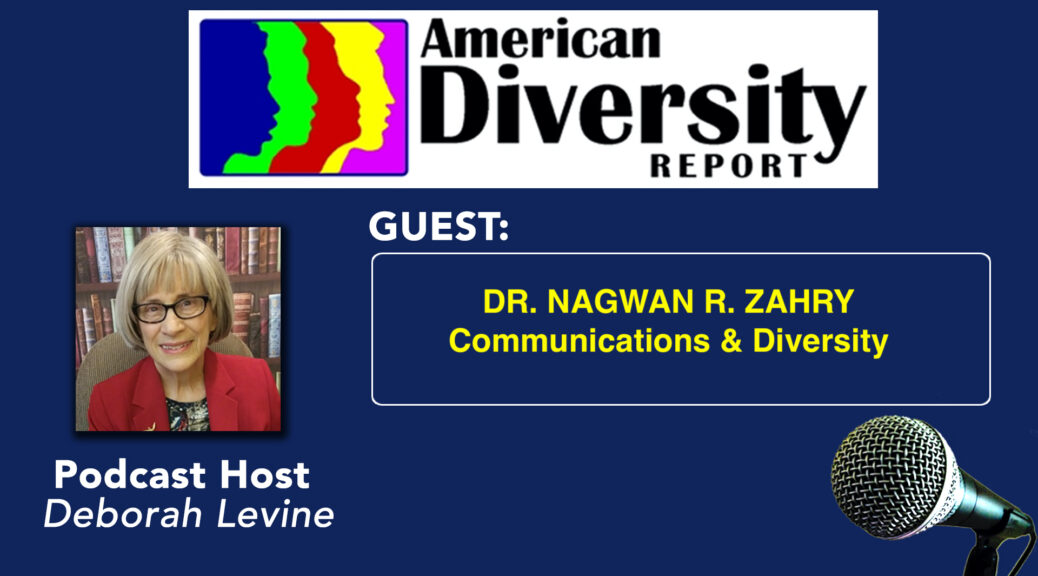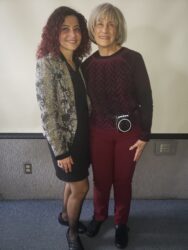Abstract
After the killing of George Floyd, Equity Rising, a group of Black professionals, came together to address social justice and equity in the government and in corporations. They believed that diversity, equity, and inclusion (DEI) expertise is essential to the total sustainability strategy of corporations and, therefore, is an essential boardroom function. The DEI expertise brings both functional and demographic diversification of board members. This article contends that since traditionally the DEI function has been populated primarily by people of color and women, DEI expertise will add to the demographic diversification of the board. With the increase in demographic diversity for other functional board positions, DEI experts will aide in establishing a critical mass of women and people of color in the boardroom.
After the killing of George Floyd and with the social unrest that followed, the first author (Dr. Ashton) was talking with Robert Ingram, publisher of the Urban Health Report, that something needed to be done to promote social justice and equity using a two-prong approach, working both through policing and corporations. She believed this two-prong approach would have sustainable positive change for social justice and equity through all facets of Black lives by holding corporations and government entities accountable. This was the beginning of Equity Rising and the push to have Diversity, Equity, and Inclusion (DEI) expertise in the boardroom.
DEI Expertise in the Boardroom
On August 6, 2020, Dr. Johnnetta Cole, President And Chair, National Council Of Negro Women and Melonie Parker, Chief Diversity Officer, Google, discussed the importance of Chief Diversity Officers (CDOs) having a voice in the C-suite of corporations. Dr. Cole gave Candi Castleberry, a supporter of Equity Rising, credit for bringing together Black professional women, many who serve as CDOs, and focused on elevating the CDO to the C-suite. (CNNBusiness, 2020) Dr. Cole believed that adding CDOs to the C-Suite would bring that expertise to the decision table and increase the demographic diversification of the C-Suite. Equity Rising would like to see CDOs represented in both the C-suite and on boards, just as there is CFO representation, bringing a diversification of function and demographics to the boardroom.
Many CDOs and retired CDOs have a broad base experience to contribute to the strategic sustainability of the corporation. To borrow from Dr. Cole’s general discussion of having Black representation in the C-suite,
“We stand in solidarity with all allies’ communities, but there is a specific need especially at this moment in our country for corporate America, for all organizations to address systemic racism that affects Black people. And [there is not] a contradiction in calling for that and standing simultaneously with all marginalized communities.” (CNNBusiness, 2020)
Marginalized communities, which include all non-dominant groups, including women, Latinos, Asians, indigenousness people and other marginalized groups nationally and globally, need to be represented on corporate boards. In 2020, people of color were only 12.5% of corporate boards. Black board members comprised only 4% of the total board seats, and Black women only 1.5% (Eavis, 2020). There is a push to increase the presence of people of color on corporate boards. Since 2020 to mid-2022, the representation of people of color on boards has increased to 23% for the S&P 500 index and to 16% from 7% for the Russell 3000 index (Michael & Mishra, 2022).
The described model of intentionally increasing the racial and ethnic diversity of the board is similar to the one used to obtain more gender diversity on boards. For decades, Irene Natividad, President of the Global Summit of Women, an annual international gathering of women leaders and co-chair of Corporate Women Directors International has advocated for the increased participation of women on corporate boards globally. Natividad is a strong believer in specific targets. And to executives who would argue that women do not have the industry or discipline experience to be on boards, she answers, “did Vice President Gore have tech experience when he got on the board of Apple? There are other skills that are needed, … There are untapped women… The pool is there, it’s just a question of creating the demand…” She acknowledged that the demand is sometimes created by quotas for instance, in California or the UK or the EU. (Nurole, 2019)
We believe that the demand for CDO representation on the board is for marketing, the consumer part, and human resources. But additionally, CDO board members can promote equity and social justice, guard against brand erosion and promote a nimble response in these transformational times.
On December 1, 2020, Nasdaq proposed to the U.S. Securities and Exchange Commission (SEC) that companies listed on Nasdaq publicly divulge the diversity representation of their board of directors and that SEC require “at least two diverse directors, including one who self-identifies as female and one who self-identifies as either an underrepresented minority or LGBTQ+.” (Nasdaq, 2020).
Anthony Romero, executive director, American Civil Liberties Union stated that Nasdaq is bending to this period of history (Nasdaq, 2020). We note that this period in history has been propelled by the Black Lives Matter movement worldwide. Historically, the United Farm Workers Movement, Women’s Rights Movement (Women’s Liberation Movement) and Gay Rights Movements, followed in the footsteps of the 1950s and 1960s Civil Rights Movement, that is, the Black Movement.
As seen by the change in board representation from 2020 to mid-2022, corporations are being driven by SEC requirements and shareholders’ demand for more diversity on the corporate boards. SEC approved Nasdaq proposal on August 9, 2021 that most companies listed on the exchange will have to hire (a) at least one director who self-identifies as female, and (b) one director who self-identifies as a person of color or LGBTQ+ (Hartunian, 2021).
This period of history fosters the need for CDOs to be appointed to boards, just as CHROs and retired CHROs are now appointed to boards. CHROs are needed because of their broad base contribution to the overall strategic success and to increase gender diversity, and CDOs and retired CDOs should likewise be appointed to the board because of their broad base contribution to the overall strategic success and to increase racial and ethnic diversity across genders. Equity Rising has had discussions with some former CEOs and executives who may influence board selection. There has been more resistance in suggesting that CDOs be on boards than there has been for CHROs. Part of the concern is that in many companies, even though CDOs were given global responsibility, they were not represented in the C-suite. However, we would argue, even if the CDOs were not represented in the C-suite, many diversity leaders established and served on global Executive Diversity Councils chaired by the CEO or CFO and made presentations to both the C-suite and the board of directors. With Nasdaq’s SEC request, we are hopeful that corporations will look to leaders with DEI expertise for board membership.
One former CEO was concerned about admitting CDOs to the board because in past years, Chief Information Officers (CIOs) had been added to boards and the CIOs had a very narrow focus of expertise that did not lend itself to a board’s view. While Michael Hyter, President and CEO, The Executive Leadership Council and former Chief Diversity Officer for Korn Ferry, is a successful example of a CDO who was appointed to a board (Dine Brands Global, Inc.), he is seen as the exception to the rule because he had experience as a Managing Partner at Korn Ferry and the President of Global Novations, a $40M business with 250 staff.
Most people of color, most women of color, neither have executive C-Suite experience in corporate America, nor in direct feeder roles such as CFOs, P&L leaders and general counsel that may lead to CEO or board positions (Larker & Tayan, 2020). People of color are underrepresented in the C-suite. They are 16 percent of the C-suite positions and only 13 percent of the positions that are readily considered for boards, such as, CEO, CFO, and P&L executives. Twenty-six percent of the Fortune 100 have no people of color reporting directly to the CEO (C+1 positions); six percent have no people of color or women as direct reports to the CEO and only four percent of CFOs are people of color. (Larker & Tayan, 2020). Similar to the racial statistics for talent, women hold 25 percent of C-suite positions and only seven percent of the CEO positions are held by women (Larker & Tayan, 2020).
However, many people of color have had meaningful executive level roles and advanced degrees, such as, MBAs and doctorate degrees, requiring rigorous analytical, empirical and decision making before or while functioning as a CDO in corporate America. And this experience can translate into transferable skills for board positions. Bersin refers to the CDO position as “One of the toughest jobs in business” He argues that it is tough because it “is a management strategy, not an HR program.” (Bersin, 2020)
Anderson from LinkedIn Talent Solutions argues that the “Head of Diversity is the job of the moment”, not only because diversity and inclusion “drive business results [increased sales, revenue, stock price] and spark innovation”, but there is a “positive difference in the brand perception of companies with a diversity and inclusion function versus companies without one.” Based on global data, organizations with a dedicated D & I office were 22% more likely to be viewed as industry-leaders with exceptional talent and 12% more likely to be viewed as inclusive for people of color and various backgrounds. (Anderson, 2020)
So why compare CDOs to CIOs? We would argue that CDOs have a strategic view of the organization and that global and corporate CDOs understand and implement DEI as an ecosystem strategy—affecting all the key business areas: operations, sales, marketing, procurement, community involvement/corporate social responsibility, strategic planning, and human resources (Ashton, 2011; Ashton & McElvane, 2019).
Research for Russell Reynolds by Paikeday, et al. found that successful CDOs collaborate and influence across functions. That CDOs are not simply ambidextrous, they are quinquedextrous that is, CDOs are proficient in five business areas. CDOs’ proficiencies include 1) being strategic executors, 2) data-savvy storytellers, 3) influencer champions, 4) savvy and authentic communicators, and 5) pragmatic disruptors. (Paikeday, Sachar, & Stuart, 2019)
When one of the former CEOs compared CDOs to CIOs and expressed concerns with having an emphasis on the Black experience because of the current unrest, Ashton’s response was to emphasize that the overall diversification of boards is essential. Board members need to represent all stakeholders, not any one group. And in these transformational times, CDOs would represent all stakeholders by virtue of their expertise. Because CDOs would focus on equity and social justice, domestically and globally. CDOs would add a valuable perspective to the board impacting CSR, externally, and policies, practices, and procedures, internally. CDOs need to be viewed as full peers with other board members. Part of diversification is diversifying what is seen as essential functions on the board. DEI professionals have a broader breadth and understanding of the organization than the IT specialists.
The importance of Environmental, Social, and Governance (ESG) to socially responsible investors is also a factor in understanding the rationale for having a DEI perspective on the board. ESG “refers to the three key factors when measuring the sustainability and ethical impact of an investment in a business or company. Most socially responsible investors, such as, BlackRock and Vanguard, evaluate corporations using ESG criteria to determine which corporations will have an impact on positive social change (Market Business News, 2022).
We believe CDOs who have worked strategically across the organization will have readily addressed the social and governance aspects of ESG. The CDO’s focus on inclusion must encompass respect, integrity, belongingness, and transparency (Ashton D. P., Inclusive Culture Profile, 2016). Inclusion covers the S of ESG, which is how people are treated (respect and belongingness) and the G of ESG, which is how corporations regulate themselves (integrity and transparency).
Just as the CFO specialist or CMO specialist, that are often sought as board members, the CDOs, who have had a companywide span of DEI crossing multiple functions, have a strategic view of the organization and see the organization as an ecosystem (Ashton D. , 2011) (Ashton & McElvane, 2019). They understand Porter’s five competitive forces that determine profitability—threat of new entrants, bargaining power of suppliers, bargaining power of buyers, threat of substitute products and intensity of rivalry; Porter’s four forces that determine success—1)factor conditions, e.g., human capital and capital resources as well as infrastructure, 2) the quality demanded by the consumers, 3) the absence or presence of related and supporting industries, e.g., suppliers needed for success, 4) the company’s strategy; and Porter’s value chain, understanding the relationship between the primary activities, such as, operations, marketing and sales and the supporting activities, such as, human resources, research and development or procurement, and how to leverage any component of the value chain for a competitive advantage (Ankli, 1992). CDOs have provided advice that have kept corporations from making critical mistakes that could erode brand equity and have during these times helped corporations maintain and enhance brand equity while addressing the needs of the employees.
Imagine, if, in 1998, Mitsubishi Motor Manufacturing of America had a strong DEI voice on the board maybe their reputation would have avoided being tarnished by the sexual harassment scandal and a legal judgement costing $34 million (Ashton D. P., 2013); or Ford Motor Company’s $22 million settlements in the 1990s and having the same problem in 2017; or the sexual harassment scandals at FOX and ABC. Imagine if a DEI expert were on the board for H&M, Prada, and Gucci whose brands suffered from what was perceived as racist imagery. Imagine if a DEI expert had been on Facebook’s board would Facebook have lost 6% of its revenue because of the advertiser boycott which was an outgrowth of Facebook allowing the “Boogaloo Boys” on their site that incited violence and printed hate speech.
CDOs have had broad experiences establishing Executive Diversity Councils, and by providing insight to human resources, to marketing, to sales, and to procurement; they have had regular interaction with the C-Suite and have had cross functional partnerships (Paikeday, Sachar, & Stuart, 2019) (Ashton D. P., Diversity Action Committees at Novant Health–North Carolina, South Carolina, Virginia and Georgia, 2014).
On its website Russel Reynolds asks, Is Your Board Positioned for Sustainable Success? Two of the inquiries to determine if the board is positioned are:
- Is your culture inclusive?
- Does your board value differences? (Russell Reynolds, 2020)
If DEI is critical to equitable treatment, sustainability, driving business results and innovation, and guarding against brand erosion, professionals with a broad breadth of CDO experience would add value to boards. They are quinquedextrous and they readily address the SG of ESG.
Next Steps/Recommendations
While we would argue that there are CDOs and retired CDOs who are currently quinquedextrous and practice these competencies by being strategic, tactical, and practical, we must lay groundwork to make the consideration of CDOs for board positions a norm. One former CEO recommended that we start by petitioning current CEOs and board members to consider candidates with CDO experience. Other successful strategies for changing the board makeup have been shareholders who advocate for change, for instance, pension funds, investment funds and private equity funds have banded together, and they have written letters and approached CEOs of companies (Nurole, 2019). Another CEO recommendation was to have retired CDOs provide advisory services to and training for the boards of Directors. A long-term strategy is for current CDOs and their allies to request or recommend that CDOs have a seat in the C-suite and the next step would be grooming them for future board positions.
However, if we want quicker movement for this critical expertise on the board, organizations may have to take the same preeminent strategy that was used for increasing the number of women on board positions globally. Natividad refers to it as helicoptering women into board seats, since “it is harder to grow them from the inside.” (Nurole, 2019)
We would recommend that in this pivotal time, it is a necessity to helicopter professionals with DEI expertise into board seats. Besides for the DEI expertise, it would bode well to have professionals who have experienced first-hand the unintentional adverse impact policies, practices and procedures have had on Black employees, customers, and the Black community. DEI experts are prime candidates to promote the learning-and-effectiveness paradigm that Ely and Thomas (Ely & Thomas, 2020) describe as essential to systemic change and a power shift. This systemic change “combat forms of discrimination and subordination that inhibit employees’ ability to thrive” and emphasizes that “Companies will not reap benefits from diversity unless they build a culture that insists on equality” (Ely & Thomas, 2020).
The perfect storm of the killing of George Floyd and the COVID-19 pandemic has made the importance of having DEI expertise on boards clear. This external ‘chance’ event has exerted enormous pressure on Porter’s “4 Forces That Determine Success” included: 1) company strategy, structure & rivalry; 2) related and supporting industries; 3) demand conditions; and 4) factor conditions (Ankli, 1992). DEI expertise has been essential in navigating this perfect storm. DEI expertise can provide direction to systemic change and a power shift promoting equitable treatment of Black people and all marginalized groups both internally and externally to the corporation.
When James White, former CEO of Jamba Juice, was asked by the first author about DEI in the boardroom, he stated, “CEOs must lead the work around Culture and Diversity, Equity, and Inclusion—the CEO can never delegate leadership and culture!” and that those efforts should have the strong governance and support of the board to measure progress. White has had a strong commitment to social justice, equity, diversity, and inclusion; however, not all CEOs have White’s expertise.
While the CEO can never delegate leadership and culture, CEOs who do not have White’s expertise can add CDOs to the board. The CDO’s expertise is a valuable asset to boards. CEOs, COOs, CFOs and CHROs from both the culture’s dominant group and marginalized groups are welcome allies. But some board members can’t see the trees for the forest. They have a bird’s-eye view—seeing the big picture. But with DEI and ESG, sometimes the devil is in the details. The board member with the CDO expertise may be able to see both the forest and the tree because they have experienced both simultaneously. They can toggle between the trees and the forest—considering primary, secondary and tertiary consequences in the S and G of the ESG.
References
Anderson, B. (2020, September 2). Why the Head of Diversity is the Job of the Moment. Retrieved from LinkedIn Talent Solutions: https://business.linkedin.com/talent-solutions/blog/diversity/2020/why-the-head-of-diversity-is-the-job-of-the-moment?trk=eml-mktg-lts-20200930-q1covidresources-19cc-cust-dm&mcid=6714199311040741376&cid=7010d000001L6sZAAS&src=e-eml&veh=LHS_EML_20200930_Q1
Ankli, R. E. (1992). Michael Porter’s Competitive Advantage and Business History. BUSINESS AND ECONOMIC HISTORY, 228-236.Ashton, D. (2011, Spring). What Makes A World Class Organization? Diversity MBA, pp. 46-48.
Ashton, D. P. (2013, December 16). Resolve Problems Before They Begin. Retrieved from Chief Learning Officer: https://www.chieflearningofficer.com/2013/12/16/resolve-problems-before-they-begin__trashed/
Ashton, D. P. (2014, December 16). Diversity Action Committees at Novant Health–North Carolina, South Carolina, Virginia and Georgia. Retrieved from Reports-HPOE: http://www.hpoe.org/Reports-HPOE/eoc-novant-case-study.pdf
Ashton, D. P., & McElvane, P. A. (2019, September). Seven Stages of Inclusion (7SI) Maturity Model. Diversity Business Review, pp. 6-11.
Bersin, J. (2020, July 20). Chief Diversity Officer: The Toughest Job in Business. . Retrieved from JoshBersin: https://joshbersin.com/2020/07/chief-diversity-officer-the-toughest-job-in-business/
CNNBusiness. (2020, August 6). Diversity in America. Retrieved from CNN: https://www.cnn.com/videos/business/2020/08/06/diversity-corporate-america-racial-inequality-google.cnnbusiness/video/playlists/business-corporate-responsibility/
Eavis, P. (2020, September 15). Diversity Push Barely Budges Corporate Boards to 12.5%, Survey Finds. Retrieved from The New York Times: https://www.nytimes.com/2020/09/15/business/economy/corporate-boards-black-hispanic-directors.html
Ely, R. J., & Thomas, D. A. (2020, November 1). Getting Serious About Diversity: Enough Already with the Business Case. Retrieved from Harvard Business Review: https://hbr.org/2020/11/getting-serious-about-diversity-enough-already-with-the-business-case
Hartunian, J. S. (2021, August 10). SEC Greenlights Board Diversity Requirements. Retrieved from The National Law Review: https://www.natlawreview.com/article/sec-greenlights-board-diversity-requirements
Larker, D. F., & Tayan, B. (2020). Diversity in the C-Suite. Palo Alto: Stanford Closer Look Series: Corporate Governance Research Initiative.
Michael, F., & Mishra, S. (2022, July 21). Racial and Ethnic Diversity on U.S. Corporate Boards—Progress Since 2020. Retrieved from Harvard Law School Forum on Corporate Governance: https://corpgov.law.harvard.edu/contributor/fassil-michael/
Nasdaq. (2020, December 1). Nasdaq to Advance Diversity through New Proposed Listing Requirements. Retrieved from Nasdaq: https://www.nasdaq.com/press-release/nasdaq-to-advance-diversity-through-new-proposed-listing-requirements-2020-12-01
Ashton, D. P. (2016). Inclusive Culture Profile. Planet Perspective, LLC.


 FOR IMMEDIATE RELEASE October 25, 2022
FOR IMMEDIATE RELEASE October 25, 2022
 Dr. Nagwan R. Zahry is assistant professor of communication at U. of Tennessee at Chattanooga (UTC). Originally from Egypt where she was a Sr. Program Manager for U.S. Agency for International Development (USAID) and U.S. Midwest Universities Consortium, Nagwan got her PhD from Michigan State U. in media and information. After graduation, she became an assistant professor of communication and in 2018, she joined UTC where she teaches social media marketing, public relations, media and diversity. Her research focuses on science communication, health communication and persuasive messaging.
Dr. Nagwan R. Zahry is assistant professor of communication at U. of Tennessee at Chattanooga (UTC). Originally from Egypt where she was a Sr. Program Manager for U.S. Agency for International Development (USAID) and U.S. Midwest Universities Consortium, Nagwan got her PhD from Michigan State U. in media and information. After graduation, she became an assistant professor of communication and in 2018, she joined UTC where she teaches social media marketing, public relations, media and diversity. Her research focuses on science communication, health communication and persuasive messaging.
